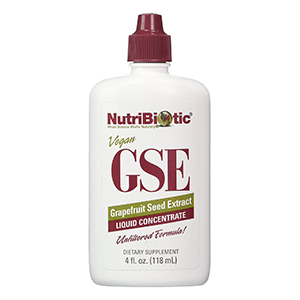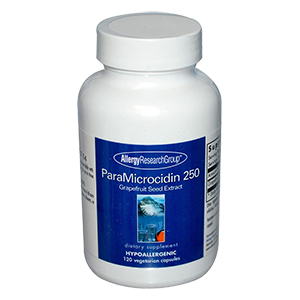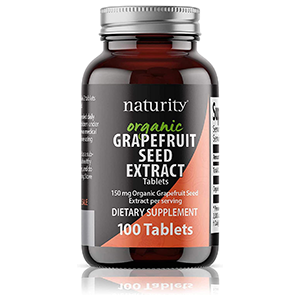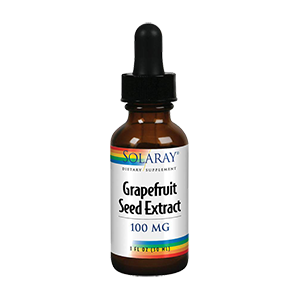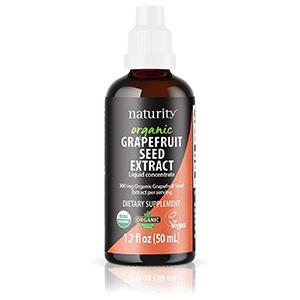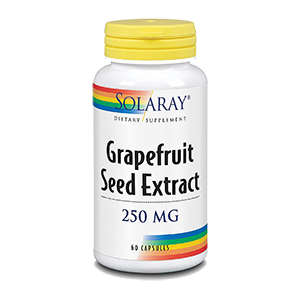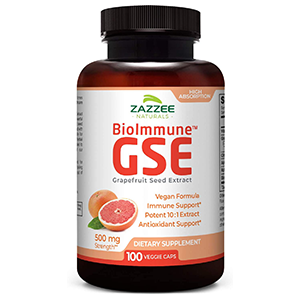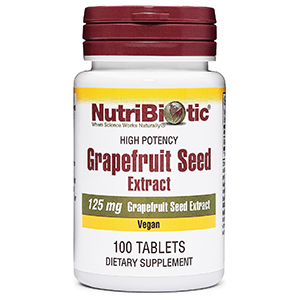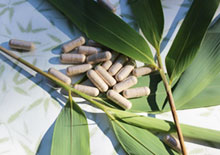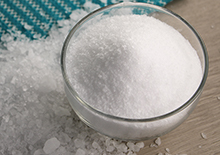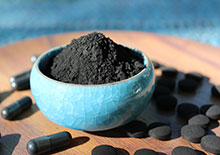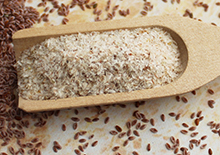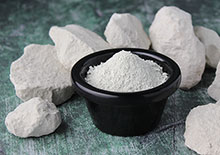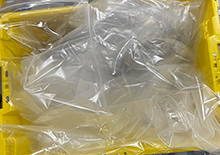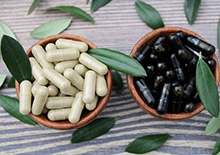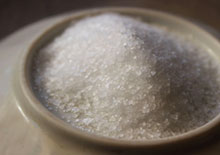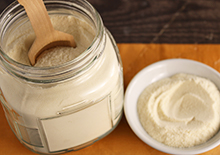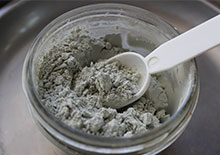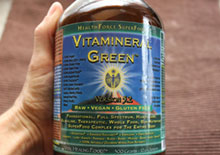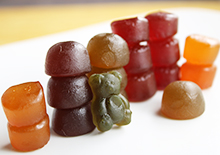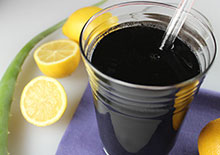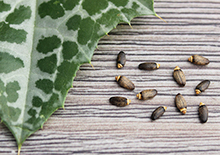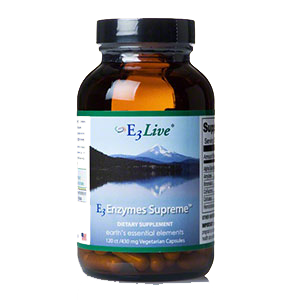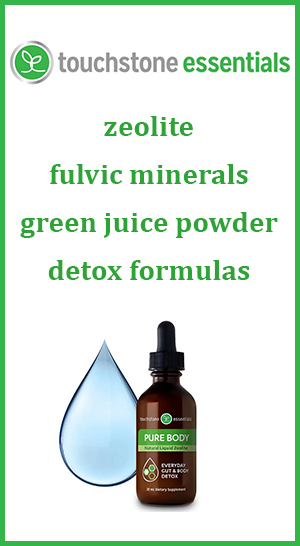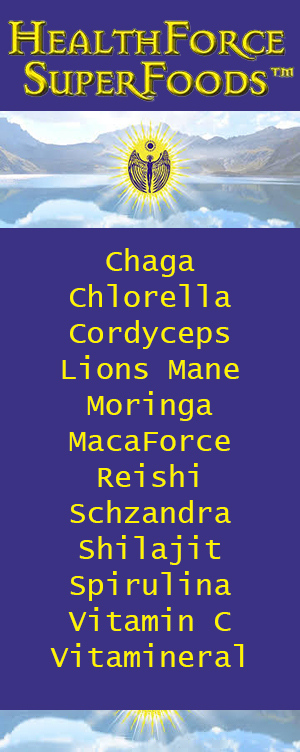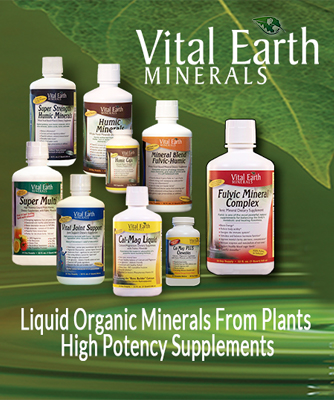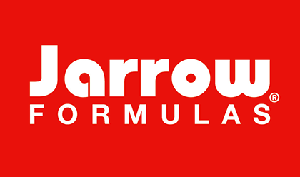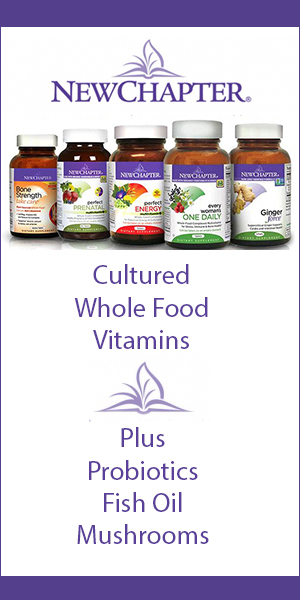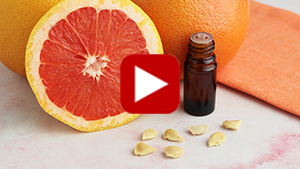- Home
- Super Supplements
- Grapefruit Seed Extract
Grapefruit Seed Extract And Its Antimicrobial Influence
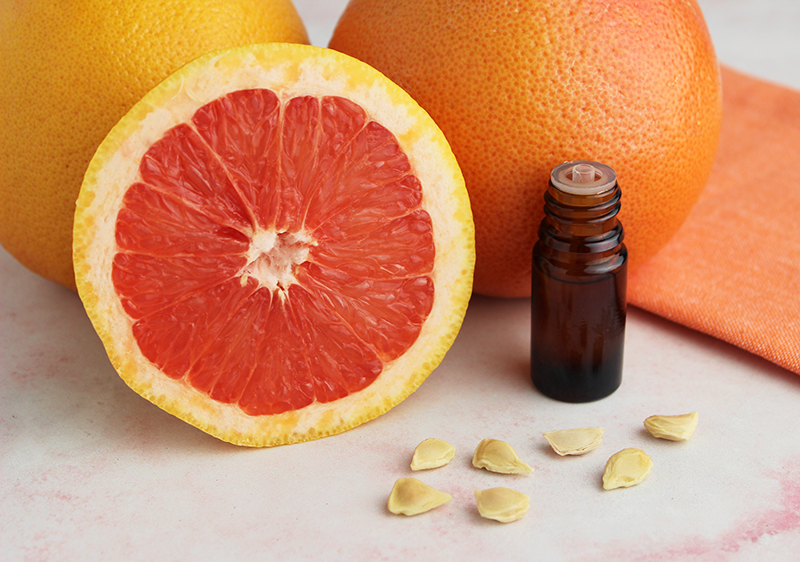
Grapefruit seed extract is a dietary supplement that has been around for many decades. We recall in the 90's it was especially popular for its claimed antibacterial and antifungal influence on conditions like systemic fungal/yeast infections when used internally.
Its proposed antimicrobial compounds were also recognized to provide antioxidant support by helping to protect the body against harmful pathogens.
On an industrial scale, grapefruit seed
extracts have also been widely used in commercial agriculture for eliminating
bacteria, mold, fungi, and parasites in animal feeds, as well as to
disinfect water. The extract is likewise utilized in natural cosmetics and food products as a preservative ingredient.
Since the early 2,000's, however, there has
been some controversy about whether these seed-derived products are as
"natural" as they sound and if they are indeed safe for human
consumption.
Below we will provide our researched findings on its properties as an antimicrobial substance as well as information about potentially harmful chemical ingredients that can be present in some, but not all, GSE products.
But first, what is grapefruit seed extract?
What is Grapefruit Seed Extract?
Grapefruit seed extract, also known as GSE or citrus seed extract, is a dietary supplement produced from the seeds of the grapefruit species Citrus paradisi. This is not to be confused with grape seed extract, which comes from grapes, not grapefruit and is an entirely different substance. Nor is GSE the same thing as grapefruit essential oil, which is created from the aromatic oils found in the citrus peel.
The grapefruit seeds medicinal characteristics were first discovered by Dr. Jakob Harich, a Florida-based physician and immunologist who later developed a patent for "grapefruit extract" in 1995. (*)
If you've ever chewed on a grapefruit seed, you will immediately taste these potent constituents which provide a very bitter/sour flavor. These acidic principles are known to come from citric acid and ascorbic acid but also certain limonoids such as LIMONIN (*) and NARINGIN. This is what gives the grapefruit flesh its predominant bitter-sweet taste compared to other types of citrus.
The LIMONOIDS, NARINGENIN (a flavorless compound), as well as FURANOCOUMARIN are believed to be the main active components responsible for the antimicrobial and germ-fighting qualities that help to reduce risk of infections. These compounds are also found in the spongy whitish pith and pulp membranes of the fruit, but to a lesser degree. Commercial extracts, therefore, often utilize both the seeds as well as the pith-pulp material.
The original patent by Dr. Harich, which claimed it to have properties as a bactericide, fungicide, and virucide (antiviral), was a ground mixture of 80% dried seeds to 20% dried pulp which was subject to extraction using glycerin, producing a liquid concentrate. This glycerin base helps to dilute its acidity and reduce its bitterness.
While liquid glycerin drop varieties are how grapefruit seed extract supplements first originated, today powdered capsules and tablets are also available.
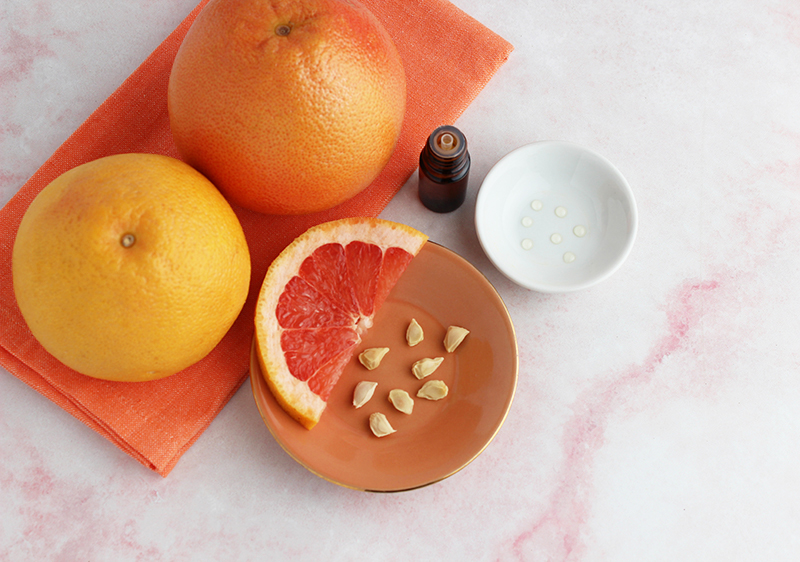
Grapefruit Seed Extract Benefits as an Antimicrobial Agent
The term antimicrobial is defined as "an agent that kills microorganisms or stops their growth." It refers to anything that can have an antibacterial, antiviral, antifungal as well as antiparasitic influence on or in the body.
While more scientific research is needed on GSE and human supplementation, one product tested in vitro under the name Citricidal showed effectiveness as an antibacterial agent with antimicrobial properties "against a wide range of gram-negative and gram-positive organisms." (Source)
In some human-based research on patients with intestinal dysbiosis, 150 mg of GSE three times a day identified effectiveness against Candida, Geotrichum sp. and hemolytic E. Coli. The growth of beneficial bacteria such as Lactobacillus was, however, partially inhibited. It is often generally recommended to take a probiotic supplement if you use grapefruit seed extract for more than 3 days at a time.
Of the active bioflavonoids in citrus seeds, the HESPERIDIN compound was found in vitro to possess the greatest impact on immune functions. (*)
Although products might vary in quality, in our opinion, a good GSE supplement might be a valuable and cost-effective household item to have in your first aid kit.
As an antibacterial agent, it can be used in DIY disinfectant sprays and sanitizers to kill germs and clean surfaces. It's also a handy product to have for cleaning your toothbrush, dropping into air diffusers, adding to the laundry wash cycle or when rinsing produce.
In one earlier study, it was suggested to be comparable to topical antibacterials and a "wide range of bacterial biotypes."
In 2019 published research, GSE was tested for its antiviral and antibacterial activity against avian influenza virus and other pathogens. It was shown to have potential as a disinfectant even within a short contact time.

Is Grapefruit Seed Extract a Natural Product?
Grapefruit seed extract is a commercially manufactured product that can be processed differently depending on the brand. Although called a "natural" supplement because, as the name implies, it's derived from the seeds of the grapefruit, not all are produced in a completely natural way.
And, in fact, some products in the past have been known to be adulterated with the three main synthetic chemicals benzethonium chloride, methyl paraben, and triclosan. (*)
It is therefore very important when using a grapefruit seed extract product internally that you purchase your supplement from a reputable company that has third party lab testing of their extracts to ensure purity.
Here are the basic production steps for making grapefruit seed extract that one dietary supplement brand sent to us via email communications.
Grapefruit Seed Extract Production Steps
- Grapefruit seed and pulp is dried and ground into a fine powder.
- The grapefruit powder is dissolved in purified water and distilled forming a slurry to remove fiber and pectin.
- This slurry is spray-dried at low temperatures forming a concentrated grapefruit bioflavonoid powder.
- This concentrated powder is dissolved in vegetable glycerin and heated.
- This material is then treated with hydrochloric acid and natural enzymes to further concentrate the bioflavonoids.
- The final product filtered and treated with ultraviolet light.
When selecting a GSE supplement, it is good to scan the list of
ingredients. Often grapefruit seed extract and
vegetable glycerin are the only two listed for liquid concentrates. Most do not, however, list synthetic chemical additives below a certain amount on product labels, even though they may be present. That's why it's good to inquire directly if you're at all
concerned.
Although not always the case, we have found in the U.S. that most of the lower quality grapefruit seed extracts are used for more industrial purposes and applications, not sold as a dietary supplement for human use.
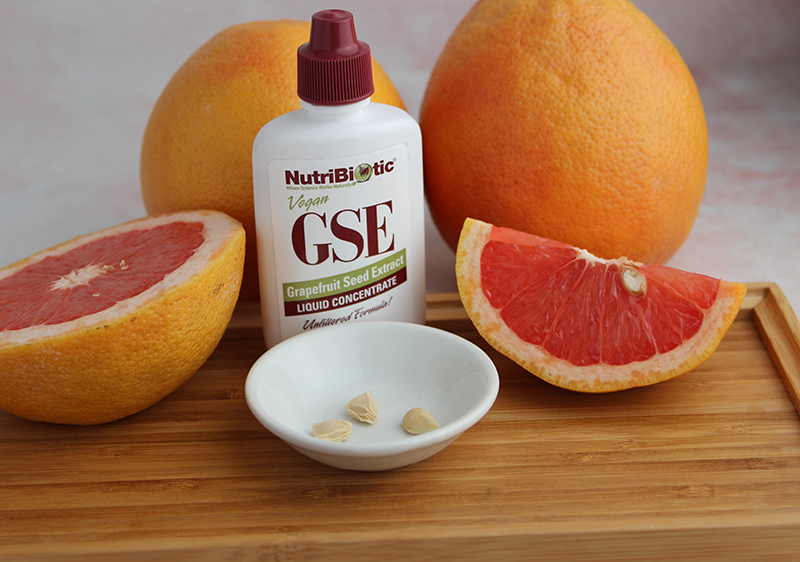
How to Use
GSE drops should be mixed into water, juice or a beverage. You should never use full strength liquid doses directly in the mouth because grapefruit seed extract is very acidic, with an average pH of about 2.2 - 2.75.
Overall, it’s good to follow the directions on product labels or as directed by your healthcare professional. However, general recommendations for adults are usually 10 drops mixed into 5-8 ounces of water or juice, consumed 1-3 times a day, with or without meals. Or, for capsules or tablets, generally 125-250 milligrams 1-2 times a day is often the medium to higher dose amount for adults.
Keep in mind, you can also get the benefits of grapefruit's antimicrobial properties by eating the seeds, pith, and pulp of a grapefruit. Or when making grapefruit juice, you can blend the whole peeled fruit with seeds to extract more of the medicinal components, then strain the fiber.
The extracts are of course more concentrated and therefore potentially more effective as an antioxidant and antimicrobial for shielding against infections and various pathogens we may encounter in everyday life.
Precautions:
Be aware that grapefruit seed extracts contain the compound furanocoumarin, which is known to interact with certain medications and may lead to serious adverse reactions for some individuals. Seek the advice of your physician before taking GSE if pregnant, nursing, if you have a serious medical condition or are taking any over-the-counter and/or prescribed medications.
Shop Related Products (About Affiliates & Amazon Associate Paid Links)
Affiliate Disclaimer: This section contains affiliate product links. If you make a purchase through our recommended links, we receive a small commission at no additional cost to you. Thanks for the support.
